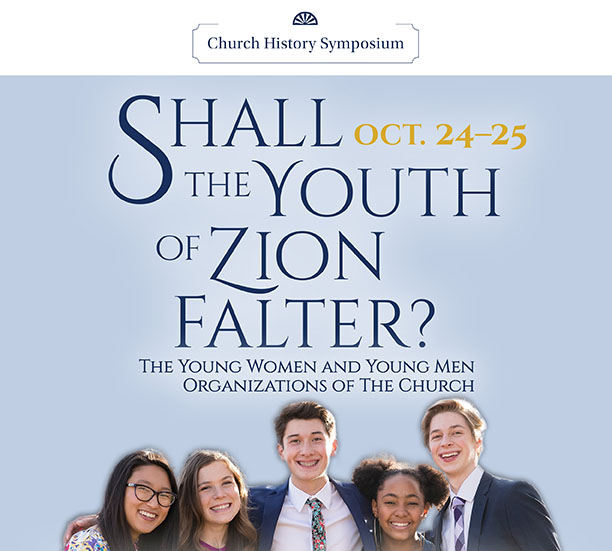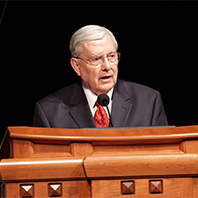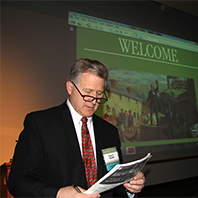Church History Symposium
This symposium is free to the public, and no registration is required. Throughout the history of the symposium, presenters have included notable General Authorities of the Church, historians, scholars, educators, and authors. This symposium was established to explore annually a topic of special interest in the history of The Church of Jesus Christ of Latter-day Saints. Historians and scholars meet to share the fruits of their research with each other and a general audience of interested Latter-day Saints and friends. Selected papers from previous symposia have been printed in books copublished by the Religious Studies Center and Deseret Book.
Church History Symposium 2024
Thursday and Friday, October 24–25, 2024
The Church History Symposium will cover the theme “Shall the Youth of Zion Falter: The Young Women and the Young Men Organizations of the Church.” The symposium will convene at Brigham Young University (October 24) and at the Conference Center in Salt Lake City (October 25). Keynote speakers include Young Women General President Emily Belle Freeman, Young Men General President Steven J. Lund, and Dr. Monica Mercado, Professor of Women’s Studies and North American Religions at Colgate University.


